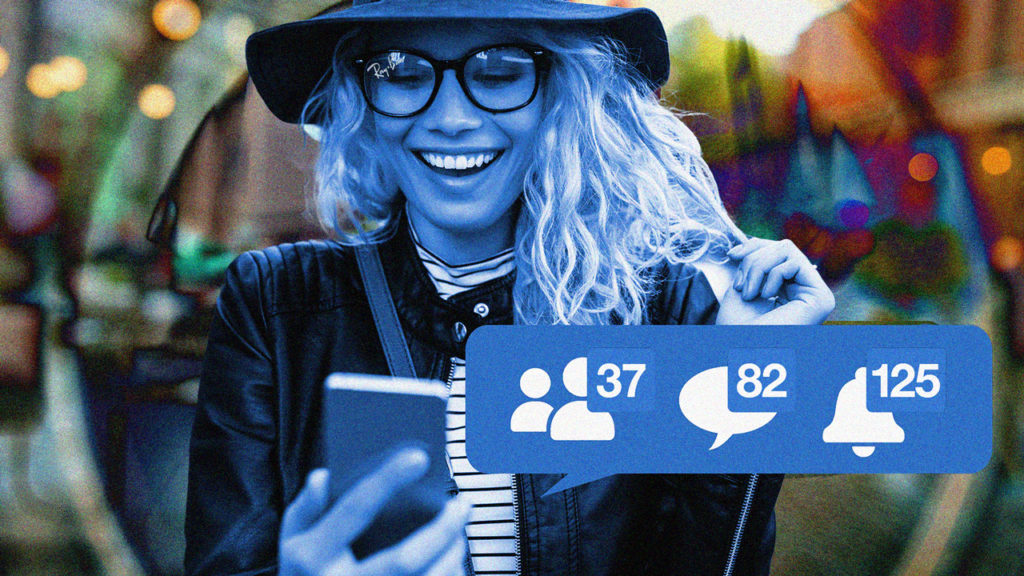Amid a push to defend its image and in light of company documents showing awareness that Instagram is harmful to teen girls, Facebook has debuted Ray-Ban Stories, its first generation of smart glasses and the first launch from its multi-year partnership with EssilorLuxottica, which was inked in September 2020.
Paired with the Facebook View app, the wearable tech has built-in open-ear audio speakers and a three-microphone audio array to enable voice calls and music listening akin to an experience you’d expect from dedicated headphones, plus two integrated 5MP cameras that let wearers capture, save and share photos and up to 30-second videos to social media apps on their phone.
Ray-Ban Stories—which start at $299 and are available in 20 style combinations and five colors in select retail stores in the US and abroad—mark Facebook’s next step to developing augmented reality (AR) glasses, which the company confirmed in 2018 it’s building.
The internet’s reaction to Ray-Ban Stories has so far has been mixed. Some users believe the glasses have ushered in the next era of AR and virtual reality (VR), while others believe they’re wrong in every way, expressing concerns around privacy and personal data. And given the deluge of privacy hiccups Facebook has run into, there’s a lot to unpack here.
Facebook says it “baked privacy directly into Ray-Ban’s design and functionality,” adding that the glasses include a hardwired capture LED in the camera that shines a white light as a means to notify people nearby while snapping photos or videos.
European regulators deem the light an inadequate mechanism, with Facebook’s lead EU data protection regulator calling on the tech giant to “confirm and demonstrate that the LED indicator light is effective for its purpose and to run an information campaign to alert the public as to how this new consumer product may give rise to less obvious recording of their images,” according to TechCrunch.
Facebook published a set of guidelines for wearing the smart glasses responsibly, such as powering off the glasses in public bathrooms and not tampering with the LED light, but some are concerned they still pose a big opportunity for them to be used nefariously. One Twitter user responded to Facebook’s announcement by tweeting:
“Can these record other people without them knowing and their consent? Seems a massive invasion of privacy disaster waiting to happen. But then again, it’s @Facebook. Since when do they care about privacy”
Other privacy-centric features include the ability to determine personal preferences for importing photos and videos and when and where you share content with the glasses. Facebook says photos and videos are encrypted on the Ray-Ban Stories, which can only be paired with one Facebook account at a time. That means if you lose your glasses and someone tries pairing them with a new phone and account, any data and media left on the glasses would be automatically deleted.
There still remain qualms about personal data breaches, with one Twitter user saying:
“Is there a conversation going on about the threat these cameras pose to passwords? I can’t help but think about how easy a casual glance at the person next to you on the train’s phone as they look at their bank account gives you record of their most sensitive information…”
Facebook says that Ray-Ban Stories only collect data needed to make the glasses work and function, like the battery status, your email address and password for your Facebook login to verify it’s really you when you log into the Facebook View app, as well as your WiFi connectivity. Users can opt-in to share additional data — including things like the number of images you captured or how long you spend taking videos — with Facebook for product development, improvement and personalization. In addition, the use of Facebook Assistant for voice command-powered capture is optional via Settings.
It’s too early to tell if Ray-Ban Stories will be viewed as an ahead-of-its-time product, but it’s undeniable that people aren’t fully comfortable with camera glasses. Case in point: Earlier predecessors have already tried and failed with wearable tech—users expressed privacy concerns over Google Glass’ built-in camera and just 0.08 percent of Snapchat’s users bought its camera sunglasses Spectacles.
On that note, one Twitter user pointed out the lack of Facebook’s innovation, saying: “@Snapchat already did this no one needs this. Okay you added speakers…”
As of now, Ray-Ban Stories smart glasses and the Facebook View app are ad-free, but given advertising revenue continues to be the bulk of the company’s income—ad revenue surged 56 percent to $28.6 billion in Q2—it would come as no surprise if that changed down the road. Until then, the smart glasses will provide brands a transformative approach to the way they capture content, specifically the ability to put viewers in the driver’s seat via an immersive, first-person experience.
As Facebook notes:
“We designed media capture to stand up to a lot of movement—from your head swiveling to take in a scene to the speed of capture from your skateboard. Optimizations from our computational photography work include HDR and Low Light Fusion, Video Stabilization, and Denoising. We also applied machine learning-enhanced tone rendering to enhance photos and videos, so they feel as authentic as the moment itself.”
Ray-Ban Stories are just the start. Facebook says there’s more in store for the future and that wearers can expect regular software updates meant to improve the experience.

